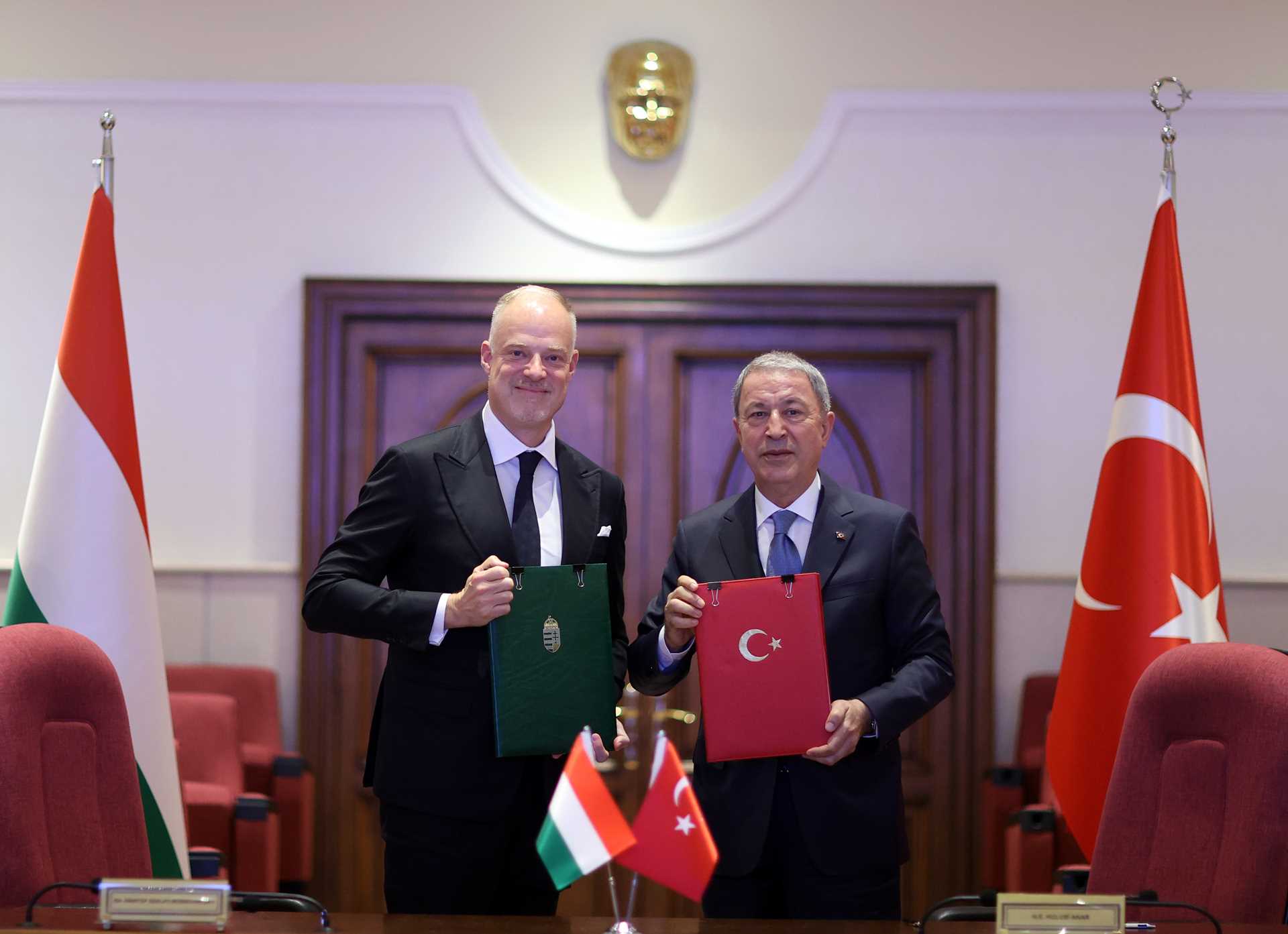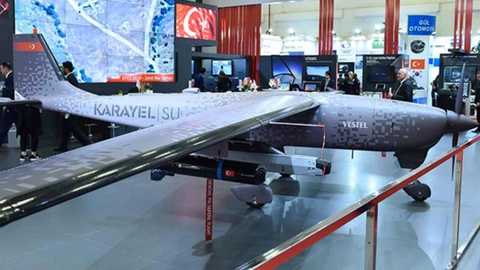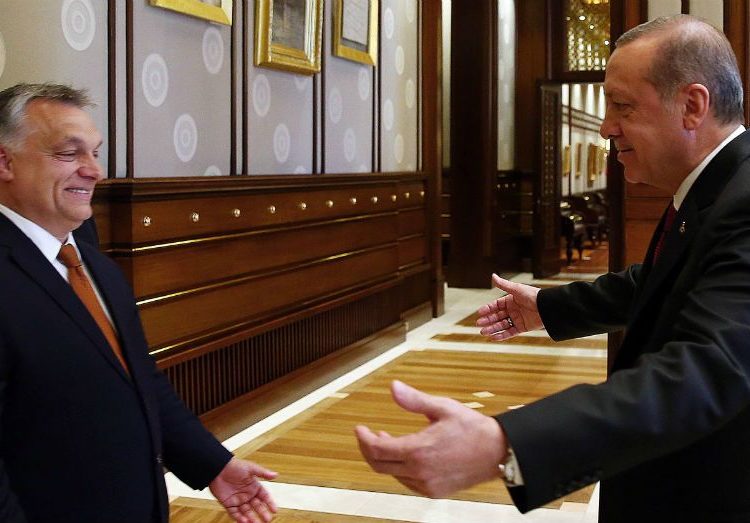Levent Kenez/Stockholm
Turkey on Monday signed a new military agreement with Hungary that includes intelligence sharing, joint exercises, training, and defense industry and logistics cooperation, Nordic Monitor has learned.
The agreement, finalized during the official visit of Hungarian Defense Minister Kristóf Szalay-Bobrovniczky, is also an indication of new purchases in the coming months.
In a statement to the press after the signing ceremony, Turkish Defense Minister Hulusi Akar told reporters that the two ministers had worked within the framework of the positive relations between Turkish President Recep Tayyip Erdoğan and Prime Minister Viktor Orbán. “We have noticed that we have similar views on many issues, and I believe our relations will progress much further in the coming period,” Akar said.
Visiting Minister Szalay-Bobrovniczky also noted that they have been aiming to furnish the Hungarian army with equipment compatible with NATO since 2017 and that they trust the Turkish defense industry in this regard.

Szalay-Bobrovniczky said 10 Ejder Yalçın armored vehicles produced by Turkey have been delivered so far and that they will soon take possession of 40 more of them.
Turkish Ejder Yalçın is a 4×4 armored combat vehicle developed to meet the operational requirements of military units and security forces in both rural and urban areas. Hungary is also working to to purchase military drones from Turkey. The Hungarian media last year reported that the KARAYEL-SU drone developed by Turkey’s Vestel was put into test studies by the Hungarian armed forces.
Turkish Defense Minister Akar and his Hungarian counterpart Szalay-Bobrovniczky on Tuesday inaugurated the Hungarian Gallipoli Monument, which was built in memory of Hungarian soldiers who lost their lives fighting alongside Turkish soldiers in the Dardanelles Wars.
Nordic Monitor previously reported that Turkey and Hungary agreed to keep defense contracts under a heavier shroud of secrecy by striking an agreement to beef up the security of classified information related to defense industry cooperation between the two countries.
According to the 2019 agreement on the mutual protection of classified information in the defense industry, a copy of which was obtained by Nordic Monitor, the countries agreed to establish procedures to ensure the security of classified data on the purchase of military equipment and arms, defense systems and spare parts and the research, development, and production of defense materiel.

In May Turkish Interior Minister Süleyman Soylu announced that Turkey and Hungary were negotiating to print each other’s passports in the event of an emergency. The intended agreement paves the way for the two countries to transfer their citizens’ personal information to each other.
Considering that the Turkish opposition claims the government will secretly give citizenship and identity cards to Syrian refugees in particular before the elections in 2023, the fact that the European country with which Turkey will share its citizens’ personal data is Hungary, run by the authoritarian Orbán, who is close to the Islamist Erdoğan, has raised concerns. In addition to drawing attention for their closeness to Russia, the two leaders are frequently on the agenda with their human rights violations and unlawful pressure on the opposition at home.
The Turkish opposition often claims that President Erdoğan is imitating Orbán’s anti-democratic tactics. Turkey’s main opposition Republican People’s Party (CHP) last month proposed a liberal amendment to the law regarding the right for women to wear a headscarf, while Erdoğan suggested a constitutional amendment. Later, it turned out that Erdoğan would add phrases to the constitutional amendment against LGBT individuals in order to protect the family and that he would take it to a referendum.
In Hungary the Orbán government changed the definition of family with a constitutional amendment in 2002, banning same-sex couples from adopting.
In the constitutional amendment, “Hungary protects the institution of marriage, established on the basis of a voluntary decision between a man and a woman, and the family, which is the basis of the survival of the nation. The basis of the family relationship is marriage and the parent-child relationship. The mother is a woman and the father is a man.”
It is claimed by the opposition that Erdoğan’s government is also working on a similar proposal.












